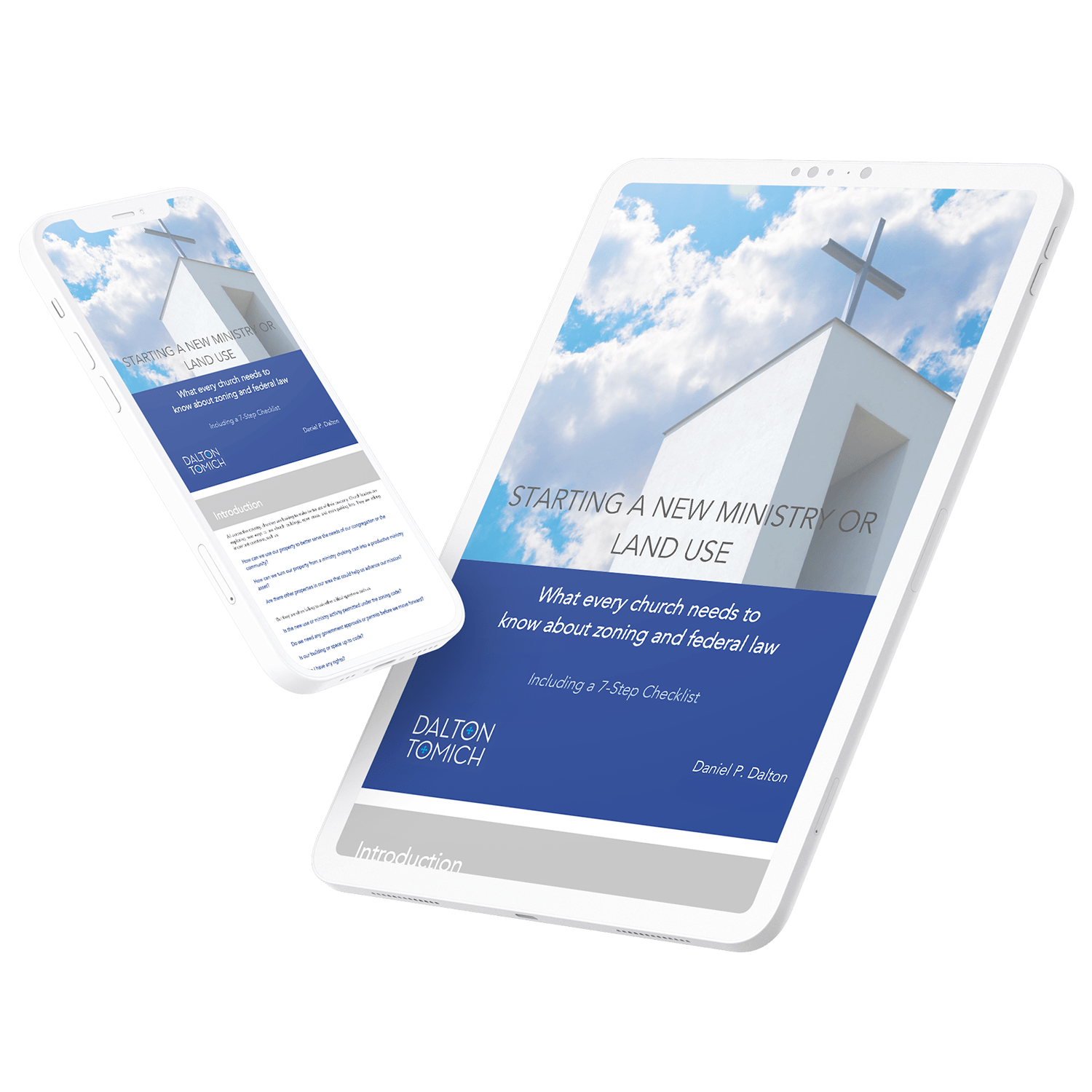GET YOUR FREE GUIDE
7 Steps to Starting a New Ministry at Your Church
What Every Church Needs To Know About Their Zoning & Land Use Rights
COVID-19 has changed the way churches think about ministry. A ministry that was previously centered around Sunday morning gatherings is now centered on live streaming and Zoom small groups, leaving buildings empty during most of the week.
At the same time, the needs in the community have become more obvious than ever. Homelessness, hunger, inequality, loneliness…they can no longer be ignored.
Churches are stepping up to love their neighbors and meet the needs of their communities. They’re rethinking church and how to use their buildings for more than just Sunday services. Many churches are starting homeless shelters, food banks, day cares, after school programs and other creative ministries in their spaces.
What a lot of churches don’t expect is to get blocked by their city or municipality when they want to use their buildings for a ministry, but it happens all the time. In fact, zoning issues are one of the main threats to religious liberty today and one of the main reasons churches end up in court.
Get Help with Your Decision
The good news is that you have more rights than you might realize. A federal law called RLUIPA (Religious Land Use and Institutionalized Persons Act) protects churches like yours from unfair discrimination and from being blocked from using your building to carry out your mission.
And with a little preventive action, you can get ahead of zoning issues before they start, ensuring you can carry out your mission and serve your community. In this FREE guide, you will get the seven steps you need to take to navigate land use challenges and carry out God’s call for your church.
Call us today (313) 859-6000.
Download the Guide to Discover:
- What you need to know about starting a new ministry at your church
- A seven-step checklist for starting a ministry at your church
- Your legal rights
- How to avoid zoning pitfalls before they arise
Fill out the form below and download your FREE guide.
No Attorney-Client Relationship or Confidentiality.
A visit to our website, or an inquiry from this site to one of our attorneys or staff members, does not create an attorney-client relationship between you and Dalton & Tomich PLC. For this reason, we caution you not to send us any information about a legal matter until after you have spoken with one of our attorneys and received instructions about what information to provide him or her. Unsolicited information that you send to Dalton & Tomich PLC will not be treated as confidential. While we would like to hear from you, we cannot represent you or advise you whether you have a claim until we know that there is no conflict of interest. In addition, as the Internet is not a guaranteed secure environment, information sent via the Internet by form or e-mail might be intercepted and read by third parties. A telephone number is provided on each attorney’s biography page.


